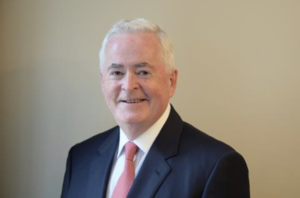Leadership for outcomes and communities
 Over the next few years and probably the next decade the public sector, voluntary and community sectors, social sector and business are going to face massive challenges:
Over the next few years and probably the next decade the public sector, voluntary and community sectors, social sector and business are going to face massive challenges:
- substantive economic growth is unlikely for some time.
- domestic and international demand for many products and services provided by the business sector could easily stall.
- public expenditure will continue to be constrained, with the prospect of further cuts for several more years.
- demand for public services will continue to grow, especially as a consequence of demographic change and austerity.
- the role of the state itself will continue to evolve, as will the relationship between citizen and state, both at local and national level.
- citizens are likely to continue becoming less deferential to authority, less trusting of the ‘establishment’, and better informed through the web and social media.
In this environment of on-going uncertainty, some changes are easily predicted and some will hit us all in surprising ways. Specifically, however, communities, neighbourhoods, and individual households and citizens are directly feeling the strains of these changes, and to no great surprise, inequality and poverty are increasing.
Such developments are placing new demands on leaders in every sector but most especially in the community, voluntary and public sectors. And new demands require new forms of leadership – or at least ones that are different to many traditional models.
Contemporary leaders have first and foremost to be excellent communicators. Their first instinct must be to listen to citizens, service users and other stakeholders. Equally, they have to be able to explain the available options; and what they are doing; and why. And in this regard, the surprise is that listening is far more important than telling!
They have to be able to influence and negotiate with others from different sectors and professions. The days of control and command are over; and if they are not (think NHS), they darn well should be! This means that a community leader or the leader of a small voluntary community organisation should feel able and be empowered to challenge and persuade leaders in other sectors, especially the public sector. The latter has to respect the right of the former to act in this way. And public sector leaders – both political and executive – have to be willing to listen and respond constructively.
Community leaders and leaders of voluntary community organisations have to be confident and they have to be able to demonstrate that they faithfully represent the views and interests of their communities, organisations and in turn their beneficiaries, rather than representing their own personal egos and ambitions.
In my experience, communities often have natural leaders who in many cases may not see themselves as ‘leaders’, whereas in some communities, there are those who actively seek to be leaders and/or impose themselves on the community. And some leaders are elected through the ballot box – but not all are. Leadership takes many forms and adopts many styles. The bottom line, however, is that leaders have to have credibility and earn the respect of the communities/groups they seek or claim to represent. And in that regard, what matters is how they behave and perform.
In challenging times, when hard and sometimes unpopular decisions will be necessary, leaders from all sectors have to demonstrate leadership through their behaviours, values and actions. It therefore seems to me that ‘excellent’ leaders must be:
- values driven
- selfless, and not ‘egotistical’
- consistent
- focused on outcomes for people and communities
- brave; ready to challenge others; to oppose what is not right; and to campaign for social justice and the right outcomes
- able to empathise with people, especially those with significant needs and/or who are most disadvantaged
- respectful of service users, beneficiaries, staff and all stakeholders with or for whom they work, even when they may have different views and interests; and ensure that those voices are heard, rather than suppressed
- open and honest – be prepared to say the truth even when this is not what people may wish to hear
- accountable
- determined to ensure effective governance is in place and followed at all times; and seeing this as a strength rather than a problem or liability
- willing to respond to suggestion and challenges to their proposed or actual decisions; and be willing to change their mind when persuaded to do so
- a measured risk-taker; bold and willing to challenge orthodoxy and vested interests and always seek the optimum solution
- creative; able to innovate, experiment and live with failures from which to learn
- ready to explore what others are doing and learn from them
- up for sharing their experiences and the learning – whether positive or not so positive
- not be possessive; ready to share power and authority; sometimes being prepared and able to ‘trade’ or ‘barter’ with others to secure the optimum solution for communities and service users
- supportive of volunteers, supporters and staff; and ensure that they are well managed and there are excellent talent management and succession planning arrangements in place
- always prepared to ‘do the right thing’ rather than simply do something ‘in the right way’
These values, attributes and skills should be reinforced by the need to communicate, negotiate, persuade – but above all, to listen. They are applicable to every sector – public (whether politician or executive), business, voluntary and community, and social. And they are interchangeable to some extent, though there may, on occasion, be different value sets between the sectors.
Leaders in all sectors are increasingly going to have to collaborate and negotiate with each other in order to achieve mutually desired outcomes. To that end, there also needs to be greater respect and understanding between the sectors at national, local and neighbourhood level.
Much of today’s agenda includes: building community resilience; creating growth; encouraging entrepreneurialism; and addressing poverty and inequality. Delivering on that agenda requires bold and focused leaders, working with other leaders but most crucially of all, working with and listening to people and communities.













Excellent piece John. Rarely does an article resonate both in terms of analysis and approach required for effective community led /neighbourhood based interventions.
Great piece John. The naysayer, the incrementalist and the bureaucrat have held the reins for too long and a culture of managerialism still exists at every link of the implementation chain. Leaders are needed at every level of public service and the future is an exciting one if we grasp this.
Too many organisations are really driven by internal priorities rather than a clear vision – that’s why we often associate public services with people and processes that prevent rather than spark progress. I have organised community ambition events in different areas of Scotland where young and old come together to set out a new vision for their area and then look at what needs to be done to get there. Many of these ideas simply make more imaginative use of existing resources – we are talking here of people who know better than anyone how to make more from less. Great leadership releases people and empowers them to stand tall and makes things happen. Most great ideas are formed in pubs, garden sheds and living rooms – not city halls. Capture the energy and ideas that are around us and we can transform the UK.